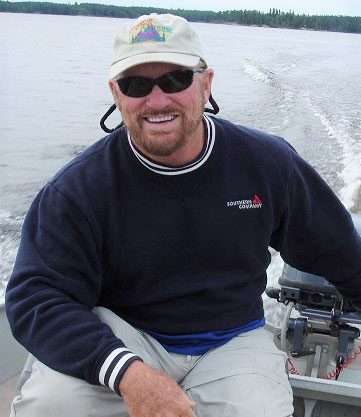I get that question often on the radio show, and generally we could think of thousands of examples and recommendations that would work. Let’s handle a very few today and see if it makes a little sense.
Go fishing. Join a fishing club that requires you to go to different lakes and streams and during times and days that you wouldn’t go otherwise. You will get to fish with, and observe, different anglers and copy, or discard, their techniques.
I recall a friend and tournament angler from many years ago who was an example of this. He qualified for the first Bassmaster Classic and, I believe, did win more than one regular season BASS tournament. His name was Junior Collis. He had only a 10th grade education but was persistent in fishing at least 100+ days per year, under many different conditions and on lakes all over the country. I fished West Point with him a few times and he beat me consistently. How? Just by staying in touch with the bait. He had made thousands of casts over the year, and I had not. He could feel the bite better.
It’s a good example of ‘going’ often. Without naming them, I know of several talented bass anglers who won the ‘Classic’ but then were never heard from again. Why? They started a promotional tour visiting fishing clinics and retail stores, and gatherings of that type, and stopped fishing as often as they had. Their talent faded.
Be a student of fishing. How? If you want to be better and enjoy it more, stop going to the same lake so often and visit others. Even on the same lake, restrict your area to parts of the lake where you’ve never fished before. Go up the river and try that.
I bass fished in a tournament with Rick Clunn. I still remember the little practices and ‘tricks’ he used to catch more and more. Here’s one he taught me that you should apply. When spring approaches, the first creek closest to the dam will warm up first because it’s not as affected by the cold temperatures of the main rivers that feed the lake. So, fish there first. Secondly, the day we were together, we were using buzzbaits, and if he got a rise to the bait but not a hook up, he had rigged a plastic worm in readiness and immediately dropped the buzzbait, without even reeling it in, and threw the plastic worm into the spot where the bite was missed. He caught the bass almost every time. I learned.
Techniques make a difference too. A few years ago, I fished with Davy Hite for a TV show. Recall that he was BASS Angler of the Year and Bassmaster Classic champion at least once. It was a cold day at 24 degrees with water at 42 degrees. I was in the front of the boat so got first shot at the targets, which were grass outcroppings in the mouth of the coves in a shallow lake in North Carolina. At these temperatures, it was one of those days that you ‘might have gotten a bite’. Not with Davy!
In three hours, I caught two and he caught five fishing ‘used’ targets. His casts were more precise and landed softly and within six inches of the edge of the grass. My casts were a foot or more from the edge. He was better at casting and, although I wouldn’t be able to tell, probably was more talented in detecting the bite or strike.
So, there you go. Go often, try different places and techniques, and you’ll get better.
